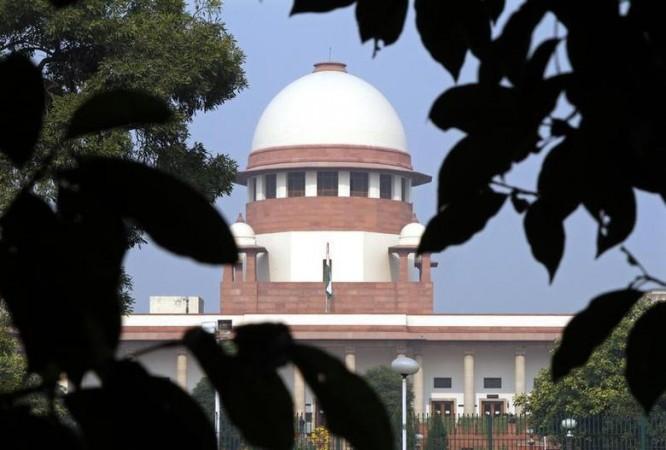The Supreme Court on Monday set aside a Karnataka High Court order, which dismissed an election petition by BJP leader A. Manju at the onset on "hyper-technical ground" against winning candidate Prajwal Revanna of the Janata Dal-Secular, from Hassan Lok Sabha constituency.
A bench of Justices Sanjay Kishan Kaul and M.M. Sundresh said: "The appellant (Manju) states the case clearly and in no uncertain terms with supporting material in the election petition. Whether the violation is made out by respondent no 1 (Revanna) or not would be a matter of trial but certainly not a matter to be shut out at the threshold."
Revanna, grandson of ex-Prime Minister H.D. Devegowda, was accused of resorting to corrupt practices by allegedly not disclosing his complete assets in his poll affidavit. The high court had termed Manju's plea as "not maintainable", as it was filed without an affidavit, which made it incomplete. Prajwal Revanna was declared the winner with 6,76,606 votes, while Manju was at second place with 5,35,282 votes.
The bench said while the requirements to be met in the election petition may be technical in nature, they are not hyper-technical, as observed in the Ponnala Lakshmaiah case.

The top court cited a Constitution Bench judgment, which opined that the defect in verification of an affidavit cannot be a sufficient ground for dismissal of the petitioner's petition summarily and such an affidavit can be permitted to be filed later.
It noted that it cannot say the high court fell into an error while considering the election petition, as a whole, to come to the conclusion that the allegations of the appellant were not confined only to Section 33A of the RP Act, "but were larger in ambit as undue influence and improper acceptance of nomination of respondent No 1 were also pleaded as violation of the mandate under Sections 123 and 100 of the RP Act".

The bench said further proceedings in the election petition are required to be taken up urgently as almost two and a half years have gone on the preliminary skirmishes rather than the meat of the matter, "which we are sure the single judge of the high court would so do".
"In effect, were such material to be available with the electorate, they would have exercised another option on the basis of it. However, while the requirements to be met in the election petition may be technical in nature, they are not hyper-technical."
Setting aside the high court's January 17, 2020 decision, observing that Manju's petition was not supported by an affidavit in Form 25, as prescribed under Rule 94A of Conduct of Election Rules, 1961, the apex court asked it to examine the matter afresh and permitted Manju to file an appropriate affidavit within 15 days.

















